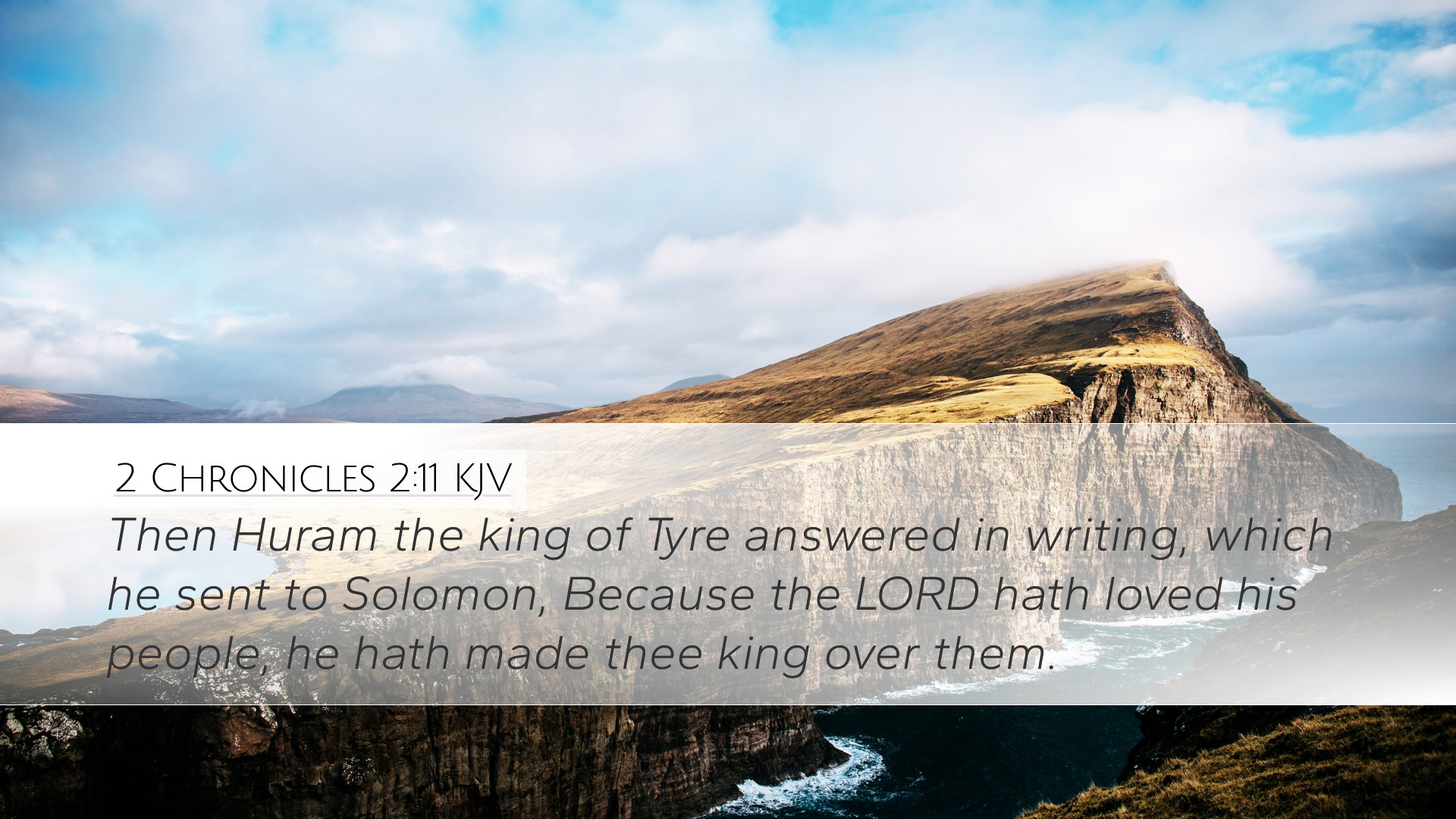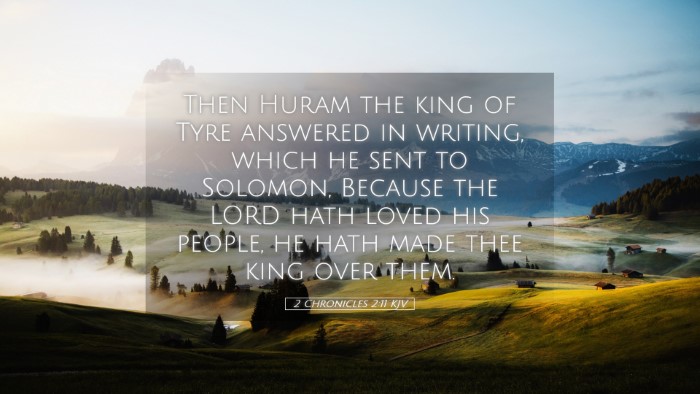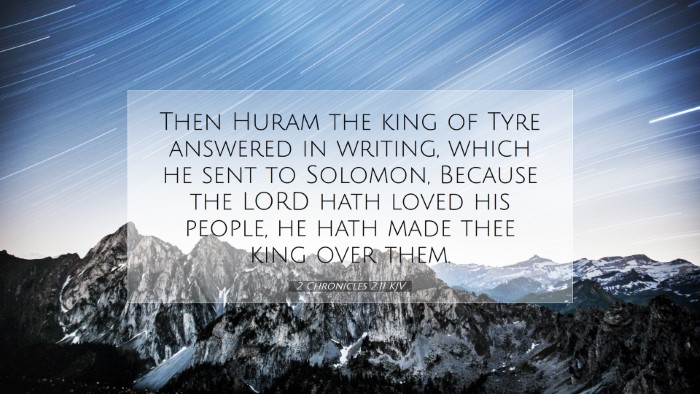Bible Commentary on 2 Chronicles 2:11
Verse: "Then Huram the king of Tyre answered in writing, which he sent to Solomon, Because the LORD hath loved his people, he hath made thee king over them." (2 Chronicles 2:11)
Introduction
This verse serves as a significant response from Huram, the king of Tyre, to Solomon’s request for materials to build the temple. It reflects not only the political alliance between Tyre and Israel but also touches upon the theological implications of divine favor and leadership. Understanding this verse requires examining it within the broader context of Solomon's kingship, the nature of God’s love, and the relationship between nations in the ancient Near East.
Theological Insights
Divine Favor: The phrase "the LORD hath loved his people" underscores the notion that God’s choice of leaders is rooted in His love for His people. This is a theme that echoes throughout Scripture, suggesting that God’s plans are always for the benefit of His covenant community. Matthew Henry notes that this love is the foundation of the blessings bestowed upon Israel, while Adam Clarke emphasizes the continuity of God’s covenant relationship with Israel, which is integral to their national identity.
Human Instrumentality: Huram’s recognition of Solomon as king indicates the importance of human leadership as divinely ordained. Clarke points out that Solomon's wisdom and the favor he enjoys are not merely personal traits but reflect God’s divine orchestration for the leadership of His people. This speaks to contemporary discussions on church leadership and governance, providing a reminder that godly leadership is a position of service driven by divine calling.
Historical Context
Understanding the political dynamics of the time enhances the interpretation of this verse. The alliance between Tyre and Israel is significant; as Albert Barnes notes, Tyre was a prominent city known for its craftsmanship and wealth. King Huram’s willingness to assist in the construction of the temple exemplifies the political alliances formed through mutual benefit and respect. This partnership foreshadows the importance of collaboration in realizing divine purposes on earth.
Literary Analysis
Analysis of the text reveals a structured reply: Huram does not merely offer assistance but contextualizes it within the framework of God’s love and Solomon’s kingship. This reflects a common literary device in ancient texts where political and theological elements are intertwined. The usage of direct communication in writing signifies the importance of clarity and authority in royal exchanges, as highlighted by Henry.
Implications for Leadership
- Servant Leadership: Solomon’s ascent to the throne was characterized by humility and the desire for wisdom, challenges that are vital for contemporary leaders. True leadership involves understanding one's role in God’s plan rather than seeking personal glory.
- Collaboration with Others: Huram's alliance with Solomon illustrates the benefits of working with others who share common goals, an essential lesson for church leadership where partnerships can enhance ministry effectiveness.
- Recognition of God’s Sovereignty: Leaders today should remember that their position comes from God’s sovereign choice, providing a framework for humility and dependence on divine guidance.
Conclusion
2 Chronicles 2:11 serves as a profound reminder of the intersection of divine providence, political alliance, and the nature of leadership. By examining Huram’s response, we gain insight into the importance of God’s love in shaping historical events and the nature of leadership. As pastors, students, theologians, and scholars reflect on this verse, it encourages a holistic understanding of how God works through individuals and nations to fulfill His divine purposes.


